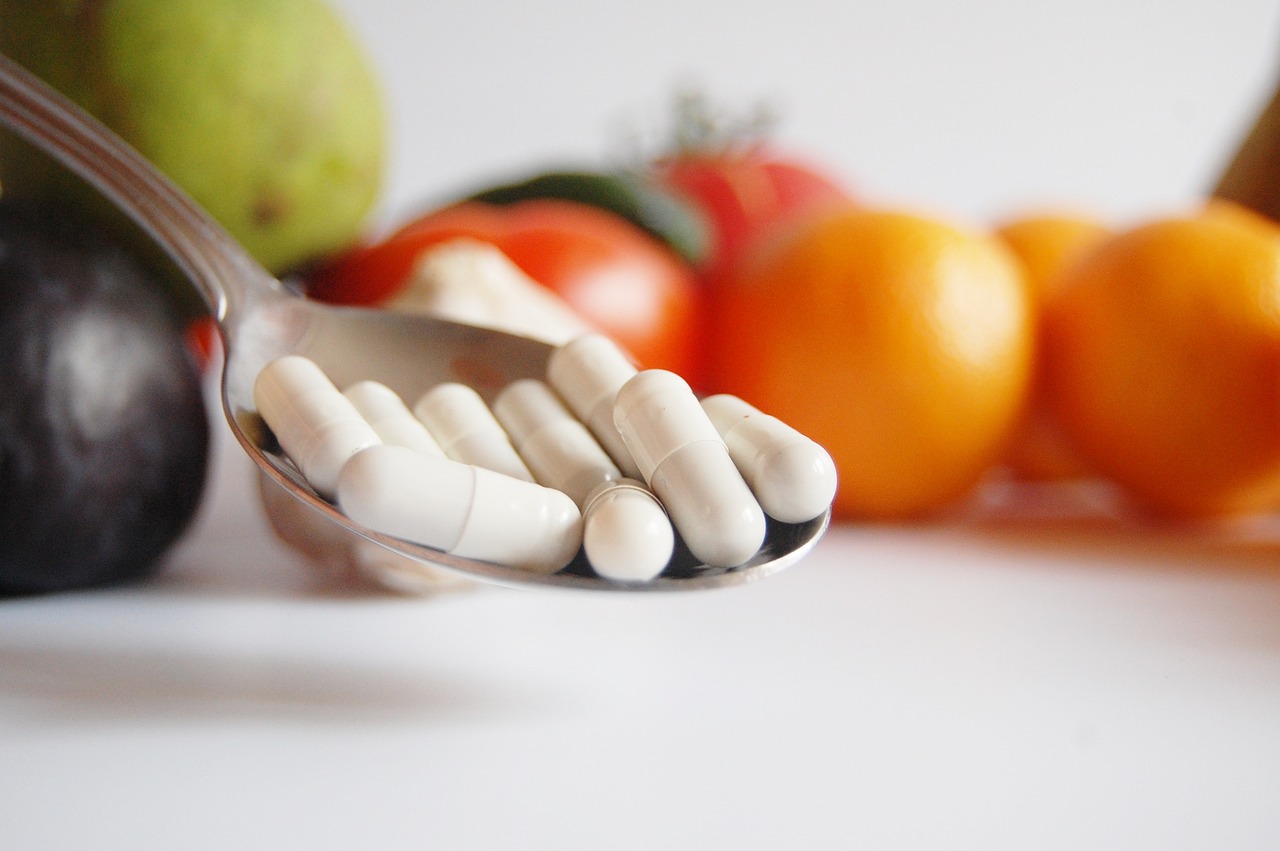In today's fast-paced, demanding world, maintaining optimal health can be challenging. Busy lifestyles often leave us exhausted, stressed, and lacking in essential nutrients. This is where supplements come in. These convenient health boosters provide extra support for our bodies to thrive. By incorporating supplements into your daily regimen, you can ensure your body gets the extra nutritional support it needs to thrive.
Simply put, supplements are concentrated forms of nutrients, such as vitamins, minerals, herbs, or other substances, taken by mouth to supplement a regular diet. They come in many forms, including pills, capsules, powders, and liquids. The purpose of supplements is to provide essential nutrients that may be lacking in the diet or to enhance specific aspects of health.

There are many types of supplements on the market, each with different uses. For example, multivitamins are popular supplements designed to provide a variety of essential vitamins and minerals. These are especially beneficial for those who have difficulty meeting their nutritional needs through diet alone.
However, it's important to note that while supplements can play an important role in supporting health, they are not a replacement for a balanced diet. It's always important to prioritize a nutrient-dense diet that includes a variety of fruits, vegetables, whole grains, lean proteins, and healthy fats.
When deciding to incorporate supplements into your daily routine, it is crucial to consult with a healthcare professional or registered dietitian. They can guide you in determining which supplements are right for your specific needs and ensure you're taking a safe and effective dose.



Dietary supplements cover a broad category of products designed to supplement the nutrients we get from our regular diet. They come in many forms, including vitamins, minerals, herbs, amino acids, and enzymes. While eating a balanced diet is generally the best way to get essential nutrients, some people may have specific dietary requirements or face challenges in meeting nutritional needs through food alone.
Who can benefit from supplements?
● Nutritional deficiencies: Individuals with specific nutritional deficiencies (such as iron, vitamin D, vitamin B12, or calcium) may require supplementation. These deficiencies may result from factors such as dietary restrictions, medical conditions, or long-term medication use.
● Special Diets: Vegetarians, vegans, and people with food intolerances or allergies may have difficulty getting all necessary nutrients through diet alone. In this case, targeted supplements can help bridge nutritional gaps.
● Certain life stages: Certain life stages, such as pregnancy, breastfeeding, or older age, may require additional supplements to support the body's changing nutritional needs. Prenatal vitamins, omega-3 fatty acids, and calcium supplements are often recommended during and after pregnancy.
● Athletes and active individuals: Individuals who engage in strenuous physical activity may benefit from certain supplements to enhance performance, promote muscle recovery, or support joint health.
● Unhealthy lifestyle and problems with self-absorption: People who drink a lot or smoke, as well as people with malabsorption or intestinal problems.

Incorporating niacin-rich foods into our diet is the best way to naturally meet our daily needs. Foods high in niacin include:
● Nuts and seeds: Some of the best sources include peanuts, sunflower seeds, almonds and flaxseeds. Not only provides a healthy dose of niacin, but also other essential nutrients, healthy fats, and fiber.
● Poultry and lean meats: Chicken, turkey, and lean beef (such as sirloin or tenderloin) contain high amounts of this essential vitamin. Not only are they rich in niacin, they also provide high-quality protein, iron, and other essential nutrients.
● Fish and seafood: Especially tuna, salmon, sardines and shrimp are not only delicious for the taste buds, but also rich in niacin.
● Whole grains: Whole grains such as brown rice, quinoa, oats, and barley are not only rich in dietary fiber, but they are also excellent sources of niacin. They provide sustained energy, aid digestion, and help regulate blood sugar levels.
● Beans and legumes: including lentils, chickpeas, kidney beans and black beans, which are rich in niacin, fiber and various minerals. They have many health benefits, including improving digestive health, stabilizing blood sugar levels and supporting heart health.
● Dairy products: dairy products such as milk, yogurt, and cheese are not only known for their calcium content, but they are also a great source of niacin.
Holistic health foods are rich in essential nutrients, vitamins, minerals and antioxidants that support our body's functions. These foods nourish us from within and provide a holistic approach to maintaining good health. Although dietary supplements can be used to supplement your diet, healthy foods are still the foundation of nutritional supplements for the body. When incorporating supplements into your personal diet, you should strive to eat a nutrient-rich diet every day.
Superstars of Holistic Health Food:
● Leafy Greens: Start your journey to overall health with leafy greens like spinach, kale, and Swiss chard. These nutrient-dense green vegetables are rich in fiber, vitamins A, C, and K and have a variety of health benefits, including strengthening the immune system, improving digestion, and reducing the risk of chronic disease.
● Berries: Enjoy the bright colors of berries like blueberries, strawberries and raspberries. These little powerhouses of nutrition are packed with antioxidants, fiber, and essential vitamins. Regular consumption of berries can promote brain health, reduce inflammation, and support heart health.
● Nuts and seeds: Include a variety of nuts and seeds in your diet, such as almonds, walnuts, flaxseeds and chia seeds. They are rich in healthy fats, fiber, protein and vitamins and have many health benefits, including improving heart health, aiding in weight management and enhancing brain function.
● Whole grains: Swap refined grains for whole grain varieties like quinoa, brown rice and oats. These nutrient-dense options are packed with fiber, B vitamins, and minerals that are essential for overall health. Whole grains can help regulate blood sugar levels, improve digestive health, and reduce the risk of chronic disease.
● Probiotics: Cultivate a healthy gut by including probiotic-rich foods in your diet. Yogurt, kefir, sauerkraut, and kimchi are excellent sources of beneficial bacteria that improve digestion, support immune function, and contribute to overall gut health.
● Lean protein: Choose lean protein sources such as poultry, fish, beans and tofu. Protein aids in muscle repair, supports metabolism, and helps you stay fuller longer. It also plays a vital role in maintaining a healthy weight and promoting overall good health.

Several factors influence the optimal dosage of a supplement. These factors include age, gender, overall health, underlying medical conditions, dietary intake, lifestyle habits, and specific goals or needs.
If a supplement comes with a recommended dose mentioned on the label or a dose suggested by a healthcare professional, then it is crucial to start with that dose. Recommended doses usually serve as a baseline and are determined based on extensive research and clinical trials. Starting with the recommended dose allows your body to adjust and respond to the supplement effectively.
Considering various factors, starting with the recommended dosage, listening to your body, and gradually adjusting the dosage can help you achieve your desired results. Remember, it is always wise to seek the guidance of a health care professional when determining the ideal dosage for your specific needs.
Q: How does magnesium contribute to overall health?
A: Magnesium is an essential mineral involved in over 300 biochemical reactions in the body. It supports nerve function, muscle health, energy production, and plays a role in maintaining a healthy heart rhythm.
Q: Can I get all the necessary nutrients from a balanced diet alone?
A: While a balanced diet is important, it can sometimes be difficult to obtain all the necessary nutrients solely from food. Supplements can help fill any nutritional gaps and ensure optimal health.
Disclaimer: This blog post serves as general information and should not be construed as medical advice. Always consult a health care professional before using any supplements or making changes to your health care regimen.
Post time: Sep-20-2023




